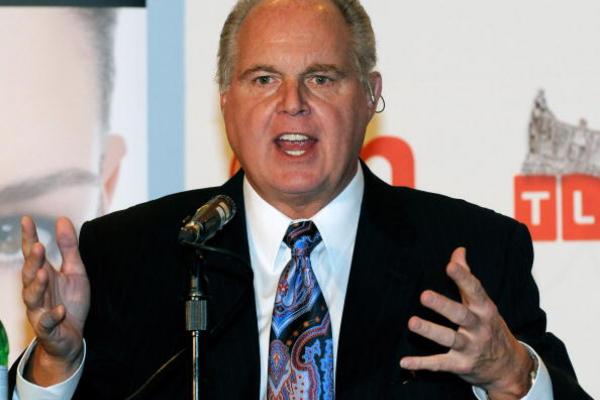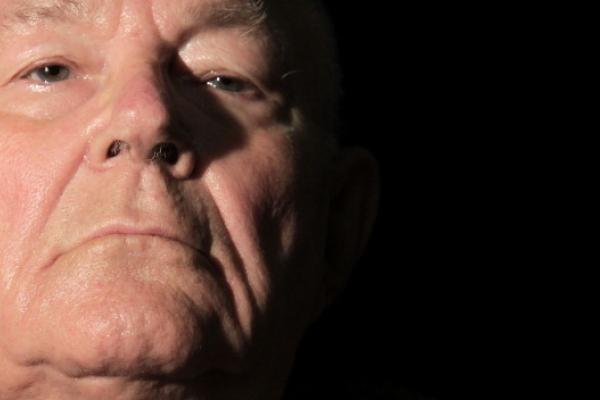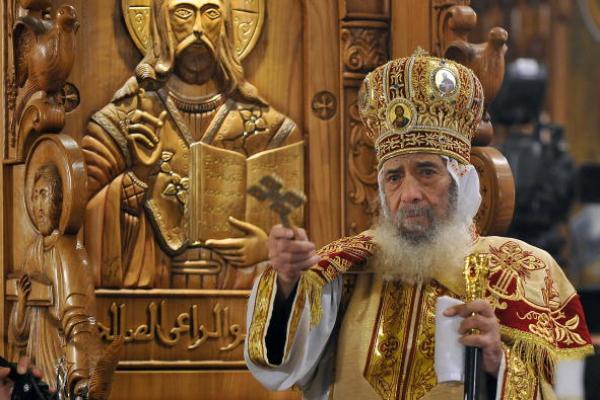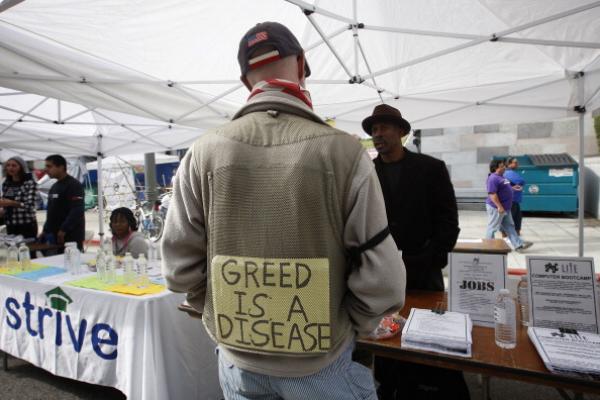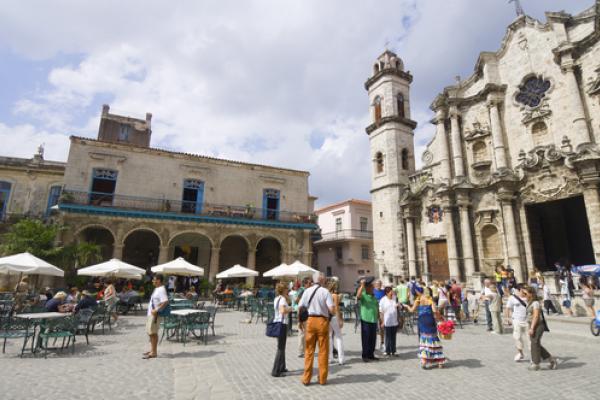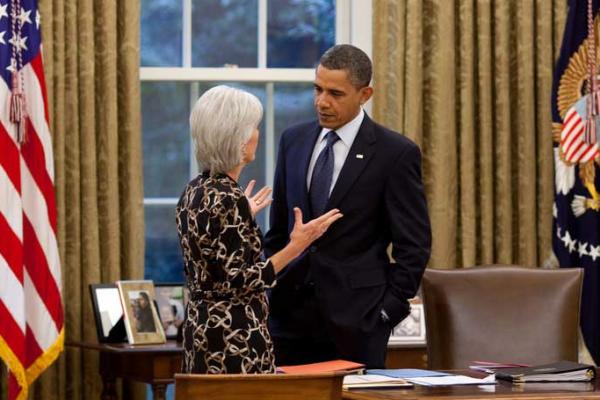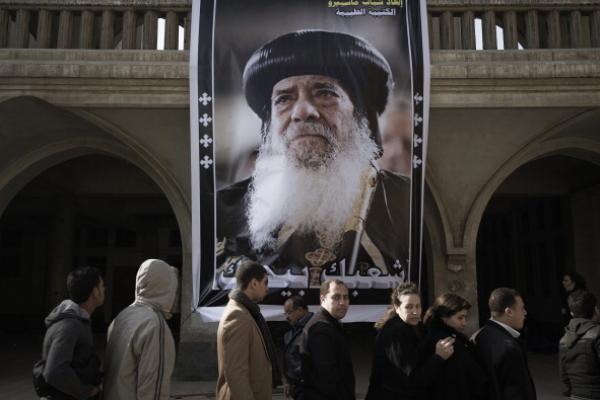Rush Limbaugh’s verbal attack against Georgetown law student Sandra Fluke last month hasn’t fared too well for his program; his advertisers have pulled out left and right since the now infamous comments. Everyone from McDonalds to Radio Shack to Ace Hardware--a total of 140 advertisers--specifically asked that their advertising not be aired during Limbaugh’s show. Some are going so far as to create "buffer zones," ensuring their ads don't air within a one- to two-hour window before and after Limbaugh's show.
Limbaugh doesn’t seem to be too concerned about the loss. As Hatewatch reports, he said it’s like “losing a couple of French fries in the container when it’s delivered to you in the drive-thru. You don’t even notice it.”
Enter the people of Westboro Baptist Church--the Topeka, Kan.-based church probably best-known for picketing at U.S. soldiers' funerals. Westboro leadership sees Limbaugh's comments as an opportune time to advertise on the show.
We often hear that there’s a “war on religion,” that certain expressions of Christianity are under attack by secularists seeking a new age of post-God. And while things may or may not be easy for Christians, our rituals are not prohibited by law, like some of our Native American neighbors.
Until recently, it was illegal for Native Americans to acquire bald eagle feathers and parts – relics used for a variety of tribal rituals and ceremonies – by any means other than family or the National Eagle Repository in Denver.
CLEVELAND--Former Ohio autoworker John Demjanjuk died Saturday (March 17) in Germany, ending nearly 35 years of legal battles with officials in three countries who claimed he was a guard in a Nazi death camp. He was 91.
During his decades-long trials, Demjanjuk was imprisoned in the United States, sentenced to death in Israel -- until its highest court freed him -- and, last May, convicted in Germany for serving as an accessory in the deaths of more than 28,000 people at a death camp.
A German court sentenced Demjanjuk to five years in prison but he was freed while he appealed the conviction.
Demjanjuk had been living in a nursing home in Bad Feilnbach in southern Germany, according to The Associated Press. He died nearly three years after being taken from his home in suburban Cleveland and flown overseas.
Demjanjuk was deported after U.S. judges ruled that he lied about his Nazi past when he entered the country in 1952 and that he was a guard at two concentration camps and a death camp in World War II.
Pope Shenouda led what many would call a biblical and spiritual life — the heartbeat of this ancient church. He loved the Bible, studying it thoroughly, memorizing vast passages, and teaching classes on its content — something unusual in the practices of this liturgical church. After becoming Pope in 1971, for many years he would teach from the Bible on a weekday night (I think it was always Wednesday) in St. Mark’s Cathedral in Cairo. He would schedule his world travels to be back in time for these Bible studies. The cathedral would be packed, and Pope Shenouda would patiently answer the questions raised by those coming to listen and learn.
When I first met Pope Shedouda in 2004, I was general secretary of the Reformed Church in America, leading a denominational delegation to the Middle East. At the close of our “audience” — a time of rich conversation — I presented him with a small travel Bible which had been printed by the RCA. It was the NRSV translation. He took it gracefully, but immediately looked up a particular verse in the New Testament that was of concern, and promptly announced that the NRSV’s translation was inaccurate.
The Bible Society of Egypt, which loved Pope Shenouda’s biblical emphasis, is using the occasion of his funeral this week to reach out to the society. Pope Shenouda’s call to ministry came in 1945, when he read a passage from the Bible in the window of a bookstore of the Bible Society of Egypt. The organization has prepared a pamphlet summarizing his life and love of the Scriptures, and printed 1,000,000 copies for distribution.
Today’s funeral will provide a focus of national attention of the extraordinary life of this church leader.
Christianity Today’s film This is Our City is provocative because of its gritty, grounded honesty. This is not a film about political pundits who banter back and forth exchanging policy talking points. No. This short film reveals the lives and thinking of two very ordinary people, their deep faith in Jesus, and how that faith is leading them to engage two of the most consequential grassroots movements of our time. These two movements share one beautiful thing in common; they are groundswells of ordinary citizens reengaging their democratic civic duty—to let their messages by heard and considered in the public square.
D.C. Innes rightly points out in his reflections that the film’s title, “Liberty or Justice for All,” and its structure seem to pit the virtues of liberty and justice against one another. Within the first minute of this nearly seven-minute film, liberty is clearly the motivation for Emmett Bailey’s Virginia Tea Party involvement, while the motivation for Pam Hogeweide’s Occupy Portland involvement is clearly “justice.” And both subjects say their involvement is an outworking of their faith.
I am on food stamps. This will surprise almost everyone who knows me. I have hidden it from friends, from family, from classmates.
I use self-checkout at the grocery store so I don’t have to face judgment from the cashiers. I read countless posts on Facebook and receive political emails telling me that being on food stamps makes me a degenerate, someone who is dependant and useless. I hear about how I should be kicked off of food stamps so I won’t be so lazy and will get a job.
At the time the economy crashed, I was studying to be a chiropractor. My (now ex-) husband was laid off from his good job. It took him over a year and a half to find a new job. During that time we lost our house and had to declare bankruptcy. Our marriage fell apart.
I’m now a single mom struggling to make ends meet. I was faced with the decision to quit school and go back to work and pray that somehow I’d be able to make the payments on more than $100,000 in student loans or to press on with my education. I prayed about it. I applied for aid. And through the grace of God, I received food stamps.
VATICAN CITY--Two weeks before Pope Benedict XVI was scheduled to touch down in Cuba, a small group of protesters occupied a church in central Havana, asking that a message with their requests be delivered directly to the pope.
Their action was swiftly condemned by church authorities as "illegitimate and irresponsible." The group remained in the church for two days, and only left Thursday (March 15) after being assured by a top church leader that they could return home without police interference.
The episode illustrates the challenges that Benedict will find in Cuba during a March 23-29 trip that will also include a stop in Mexico. But it also highlights the good relationship that the Catholic Church has built in recent years with the island's communist regime.
The trip will be the pontiff's second visit to Latin America, which is home to almost half of the world's Catholics. Benedict visited Brazil in 2007.
During his trip, the pope will meet political leaders from both countries and, according to the Vatican's top spokesman, the Rev. Federico Lombardi, he might even have a brief encounter with longtime Cuban leader Fidel Castro, though it is not on the official agenda yet.
The Obama administration is offering to expand the number of faith-based groups that can be exempt from the controversial contraception mandate, and proposing that third-party companies administer coverage for self-insured faith-based groups at no cost.
At its heart, the newest offering from the White House would allow religious groups -- dioceses, denominations and others -- to decide which affiliated institutions are "religious" and therefore exempt from the new requirement that employers offer free contraception coverage as part of employee insurance plans.
The proposals are an effort by the administration to blunt criticisms of the controversial regulation, especially by the nation's Catholic bishops, who have been at loggerheads with the White House since President Obama announced the contraception mandate in January.
Egyptian Christians are mourning the death of Pope Shenouda III, the longtime leader of the Coptic Orthodox Church, who died on Saturday (March 17) at the age of 88.
His funeral will be on Wednesday (March 21) at St. Mark's Cathedral in Cairo, where his body has been sitting in state on a large wooden throne.
Tributes have come in from around the world, with Pope Benedict XVI offering prayers and President Obama praising Pope Shenouda as an "advocate for tolerance and religious dialogue."
ST. LOUIS--Wading into sensitive church-state territory, a Missouri judge has ruled in favor of an independent-minded Catholic church that claims ownership of its property and autonomy from the Archdiocese of St. Louis.
Judge Bryan Hettenbach's 50-page ruling in favor of St. Stanislaus Kostka Catholic Church is unusual for the strong interjection of a civil court into internal church matters.
In a statement, St. Louis Archbishop Robert Carlson promised to appeal the judge's opinion "all the way to the Supreme Court."
Hettenbach was careful to point out in his ruling that civil courts have no business wading into theological or ecclesiastical issues, or interpreting church law.
But he also acknowledged that the case brought by the archdiocese had given him no choice but to grapple with the Catholic Church's internal canon laws.
St. Stanislaus' lawyers believe Hettenbach succeeded. On Thursday (March 15), Richard Scherrer, one of the church's attorneys called the judge's opinion "unassailable," and a "correct finding of law."
